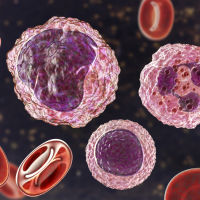Antibiotics are often prescribed in the emergency department (ED) to patients with suspected infection before any definitive diagnosis can be made. However, amidst increasing antibiotic resistance, their use should be limited to those at high risk of infection or further clinical deterioration. Current tools to aid clinical decision-making include the use of procalcitonin (PCT) and C-reactive protein (CRP).
Researchers from Sweden and three other European countries conducted a study to assess the usefulness of a novel biomarker (known as mid-regional proadrenomedullin, or MR-proADM) versus PCT, CRP and lactate in guiding antibiotic administration during treatment within the ED. This post hoc analysis involved a patient subset (Malmö, Sweden) from the research team's previous investigation.
Within this subset (N = 213), 26 patients (12.2%) were prescribed antibiotics < 48 hours prior to presentation, whilst 187 (87.8%) were administered antibiotics during ED assessment. Of these patients, 164 (77.0%) were treated with intravenous (IV) and 23 (10.8%) with oral antibiotics. The median time to initial administration was 93 [28–160] minutes, with 71 (43.8%) patients receiving therapy within 60 minutes.
Analyses of data revealed that MR-proADM had the strongest association with the requirement for antibiotic administration during ED treatment. Interestingly, MR-proADM and lactate were the only parameters to be significantly negatively correlated with the time to antibiotic administration, with significant differences found at optimised MR-proADM cut-offs for antibiotic administration (1.27 nmol/L: 139 [76–211] vs. 43 [26–135] minutes; p < 0.001) or pre-established cut-offs for mortality prediction (1.54 nmol/L: 124 [33–199] vs. 42 [26–122] minutes; p = 0.002).
The researchers also observed that low MR-proADM concentrations resulted in an absence of ICU admission or 28-day mortality, despite lower antibiotic administration rates and a significantly longer time to administration, irrespective of corresponding PCT concentration.
These findings, the researchers point out, suggest that delayed antibiotic administration in patients with low MR-proADM concentrations may result in few adverse effects, potentially allowing for a more detailed clinical assessment prior to any subsequent initiation. However, these initial findings need to be confirmed in additional studies involving larger patient populations, according to the research team.
Source: Critical Care
Image Credit: iStock
References:
Rosenqvist M et al. (2019) Biomarkers to guide antibiotic timing and administration in infected patients presenting to the emergency department. Critical Care 23:141 https://doi.org/10.1186/s13054-019-2422-9
Latest Articles
Biomarkers, antibiotic resistance, antibiotics
Researchers from Sweden and three other European countries conducted a study to assess the usefulness of a novel biomarker (known as mid-regional proadrenomedullin, or MR-proADM) versus PCT, CRP and lactate in guiding antibiotic administration during trea



























